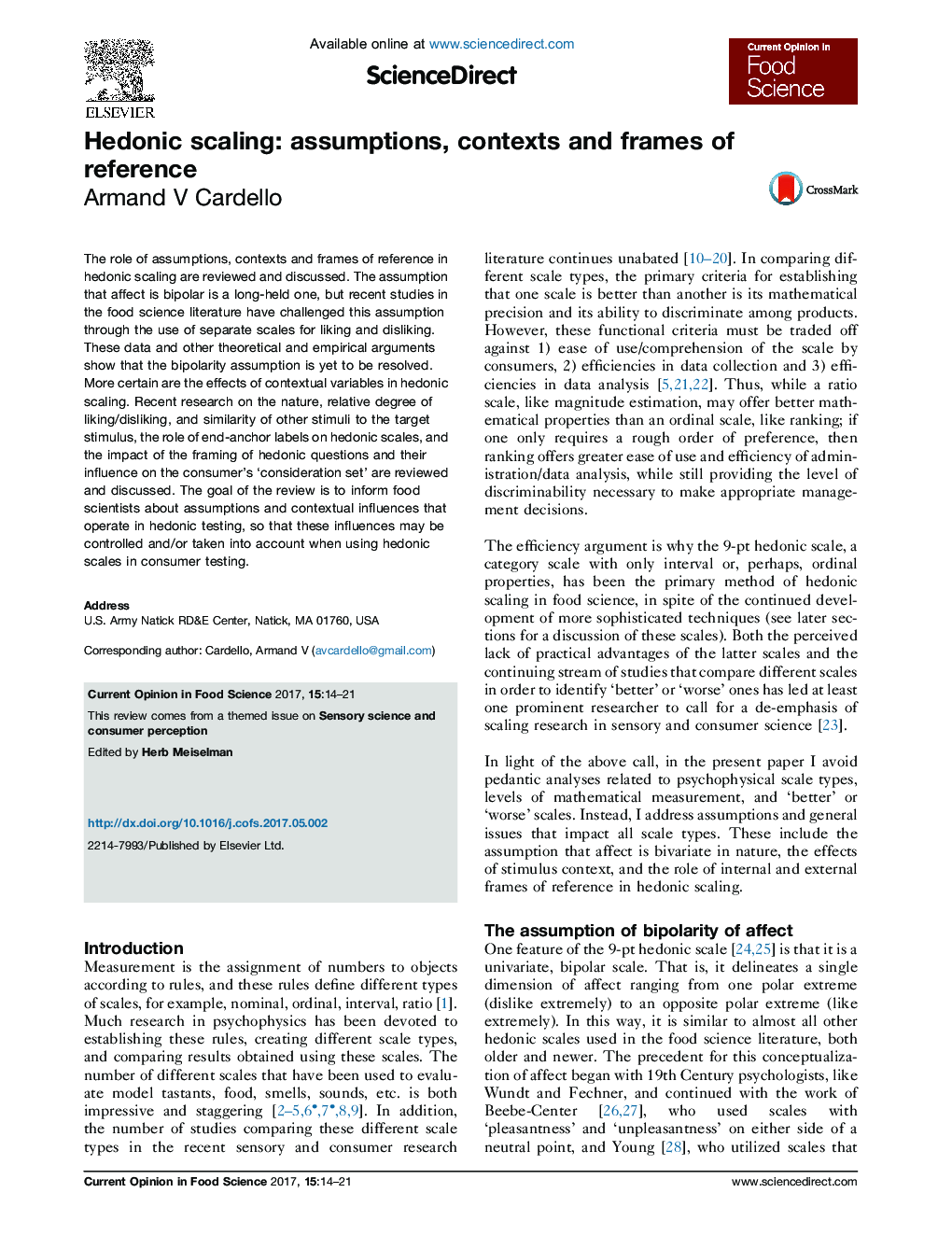| Article ID | Journal | Published Year | Pages | File Type |
|---|---|---|---|---|
| 5520884 | Current Opinion in Food Science | 2017 | 8 Pages |
â¢Assumptions, contexts and frames of reference in hedonic scaling are reviewed.â¢The assumption of the bipolarity of the hedonic dimension is unresolved.â¢Contextual effects from other stimuli and from scale end-anchors are ubiquitous.â¢Framing of hedonic questions can impact the consumer's 'consideration set'.â¢Impacts, counter measures and trade-offs for the food scientist are discussed.
The role of assumptions, contexts and frames of reference in hedonic scaling are reviewed and discussed. The assumption that affect is bipolar is a long-held one, but recent studies in the food science literature have challenged this assumption through the use of separate scales for liking and disliking. These data and other theoretical and empirical arguments show that the bipolarity assumption is yet to be resolved. More certain are the effects of contextual variables in hedonic scaling. Recent research on the nature, relative degree of liking/disliking, and similarity of other stimuli to the target stimulus, the role of end-anchor labels on hedonic scales, and the impact of the framing of hedonic questions and their influence on the consumer's 'consideration set' are reviewed and discussed. The goal of the review is to inform food scientists about assumptions and contextual influences that operate in hedonic testing, so that these influences may be controlled and/or taken into account when using hedonic scales in consumer testing.
